Hello there, fellow dog lover! I’m Dr. Candy, your friendly holistic veterinarian. Today, we’re going to talk about a topic that’s close to my heart – Alaskan Klee Kai Dental Health. Now, I know what you’re thinking, “Dental health? Isn’t that just about bad breath and shiny teeth?” Well, not quite. Dental health is a vital part of your Alaskan Klee Kai’s overall wellbeing. In fact, dental problems in Alaskan Klee Kai can lead to serious health issues if left untreated. So, let’s get started on our journey to ensure our furry friends have the best oral care possible. From recognizing signs of dental disease to exploring conventional and holistic treatments, we’ll cover it all. Plus, I’ll share my top recommended dental chews and products for your Klee Kai. Trust me, your pup’s teeth (and breath) will thank you!
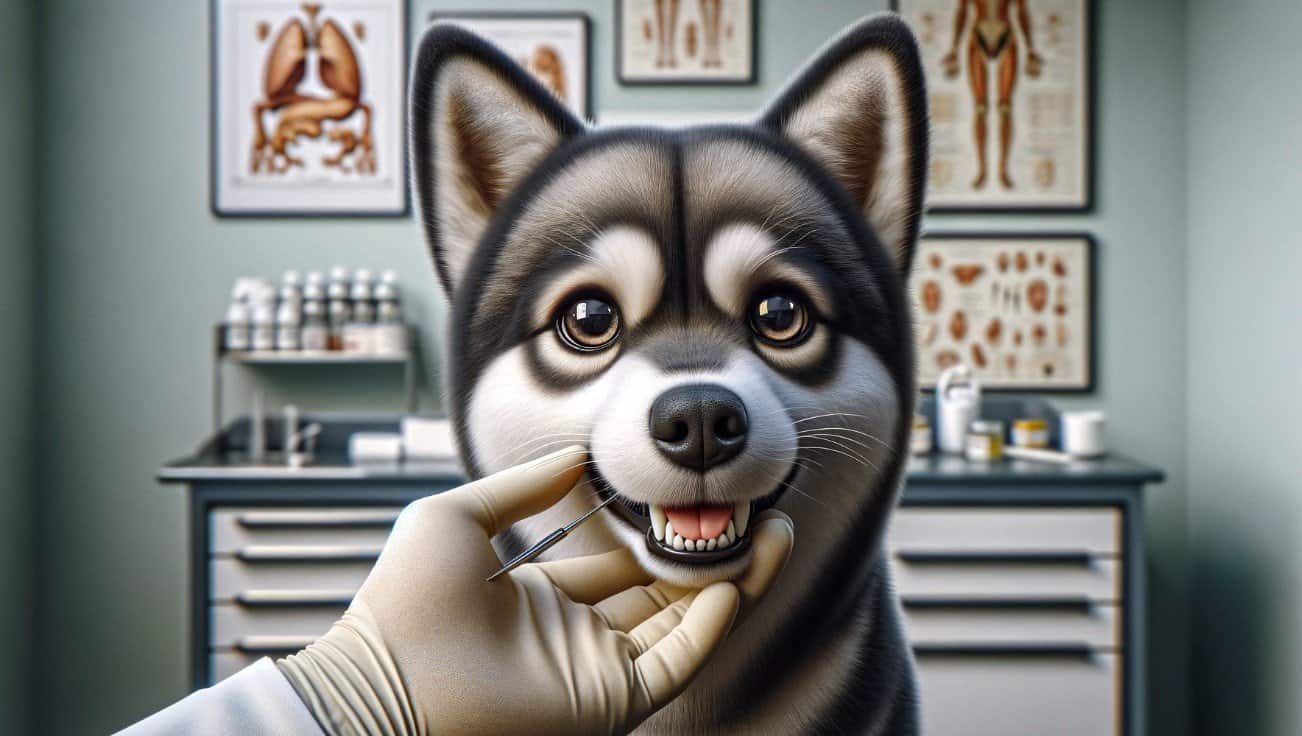
Signs of Dental Disease in Alaskan Klee Kai
As a holistic veterinarian, I’ve seen my fair share of dental issues in dogs. But when it comes to the Alaskan Klee Kai, there are certain signs you need to look out for in order to maintain their dental health.
Firstly, one of the most common signs of dental disease in these adorable pups is bad breath. While it’s normal for your dog to have a certain ‘doggy breath’, an excessively foul smell could be a sign of an underlying dental issue.
Another sign to look out for is a change in their eating habits. If your Alaskan Klee Kai is suddenly showing reluctance to eat, especially hard food, or is favoring one side of the mouth, it could be a sign of dental pain or discomfort.
Also, keep an eye out for excessive drooling or pawing at the mouth. These are often signs of oral discomfort. You might also notice a change in their behavior such as becoming irritable or depressed.
Upon examining your dog’s mouth, look for signs like red, swollen, or bleeding gums. These are clear indications of gingivitis, a common dental disease in dogs. Discolored teeth or visible tartar build-up can also signal dental problems.
In some cases, you might even notice your Alaskan Klee Kai losing their teeth. This is usually a sign of advanced dental disease that requires immediate veterinary attention.
Remember, your dog’s mouth is a window into their overall health. Dental disease can lead to serious health issues including heart disease and kidney disease if left untreated. As a responsible Alaskan Klee Kai parent, it’s essential to regularly check their mouth for these signs and seek veterinary care if you notice anything unusual.
Remember, early detection is key to maintaining your Alaskan Klee Kai’s dental health. With regular check-ups and a keen eye for these signs, you can ensure your furry friend stays healthy and happy.

Common Dental Health Issues In Alaskan Klee Kai
As a veterinarian, I often see certain Alaskan Klee Kai dental health problems more frequently than others. This breed is prone to a range of dental issues, some of which can be quite serious if left untreated. Let’s discuss the most common ones:
- Periodontal Disease: This is a common issue in many breeds, including the Alaskan Klee Kai. It’s caused by plaque and tartar build-up, leading to inflammation and potential loss of teeth.
- Dental Caries: Also known as cavities, these are less common but can occur in Alaskan Klee Kai. These painful holes in the teeth can lead to more serious issues if not addressed.
- Gingivitis: This is the early stage of periodontal disease, characterized by red, swollen gums. It’s reversible with proper Alaskan Klee Kai dental health care.
- Broken Teeth: These adventurous dogs can sometimes break a tooth while playing or chewing on hard objects. This can be painful and may require veterinary intervention.
Remember, prevention is always better than cure. Regular check-ups and a good dental hygiene routine can help keep your Alaskan Klee Kai’s teeth healthy. If you notice any signs of dental disease such as bad breath, difficulty eating, or changes in behavior, don’t hesitate to consult your vet. Together, we can ensure your Alaskan Klee Kai maintains optimal dental health.
Conventional Dental Health Treatments
When it comes to Alaskan Klee Kai dental health, conventional dental treatments play a significant role. They are designed to tackle existing dental problems and prevent new ones from developing. Let’s look at some of these treatments.
Anesthetic Dental Cleanings
Anesthetic dental cleanings are a common procedure that involves sedating your Klee Kai to thoroughly clean their teeth. This method allows the vet to reach areas that are typically hard to clean, such as under the gum line and the back teeth. It is a highly effective way of preventing and treating dental disease in your Alaskan Klee Kai.
However, while anesthetic dental cleanings can be beneficial, they are not without risks. The use of anesthesia always carries some risk, especially for dogs with existing health conditions like heart problems, or for those that are of extreme age. Therefore, it’s essential to discuss the pros and cons with your vet before deciding on this treatment.
Potential Individual Health Obstacles
Each Alaskan Klee Kai is unique, and their dental health can be affected by a variety of individual health obstacles. For instance, some dogs may have drug sensitivities that make certain treatments risky. Others may suffer from conditions like seizures, which can be triggered by stress or certain medications.
Furthermore, older dogs may have a harder time recovering from dental procedures, and their age can make them more susceptible to certain dental issues. Therefore, it’s crucial to consider your dog’s individual health status when choosing a dental health treatment.
Remember, maintaining your Klee Kai’s dental hygiene is not just about treatments. Regular teeth cleaning, a balanced diet, and the right dental chews can all contribute to your dog’s oral health. It’s always best to consult with your vet to determine the most suitable dental health plan for your furry friend.

Dr. Candy’s Holistic Approach To Oral & Dental Health
As a devoted dog parent, it’s crucial to understand that your Alaskan Klee Kai’s dental health goes beyond regular teeth cleaning and vet check-ups. There’s a more holistic approach that can significantly improve your furry friend’s oral health, and it starts with their diet and the use of specific probiotics.
Diet- Low Carbs, Avoid Added Sugars, Enzymes In Fresh Food
The first step in this holistic approach is adjusting your Alaskan Klee Kai’s diet. A diet low in carbs is beneficial as it reduces the amount of sugar in your dog’s mouth, which bacteria feed on. By limiting carbohydrates, you’re starving these harmful bacteria of their food source, thereby promoting healthier teeth and gums.
Another crucial aspect of your dog’s diet is avoiding added sugars. Just like in humans, sugar can lead to tooth decay in dogs. Many commercial dog foods and treats are loaded with added sugars, so it’s essential to read the labels carefully. Opt for products with no added sugars, and instead, provide your dog with fresh, whole foods whenever possible.
Speaking of fresh foods, incorporating foods rich in natural enzymes into your Klee Kai’s diet can be a game-changer for their oral health. Raw fruits and vegetables, for instance, contain enzymes that can help break down plaque and tartar. Consider adding foods like apples, carrots, and celery to your dog’s diet. But remember, moderation is key, and it’s always best to consult with your vet before making significant changes to your dog’s diet.
Oral Health Specific Probiotics
Another component of this holistic approach to your Alaskan Klee Kai’s dental health is the use of oral health-specific probiotics. Probiotics are beneficial bacteria that can help balance the oral microbiome, reducing harmful bacteria that cause bad breath, plaque, and gum disease.
I highly recommend Probiora for Dogs, an oral health targeted probiotic. This product is specifically designed to support canine oral health, and it’s easy to use. Simply sprinkle the recommended dose onto your dog’s food once a day. It’s a small step that can make a big difference in your dog’s oral health.
Remember, your Alaskan Klee Kai’s dental health is a crucial part of their overall well-being. By adopting a more holistic approach, focusing on diet and the use of specific probiotics, you’re not just fighting bad breath and tooth decay – you’re enhancing your dog’s quality of life.
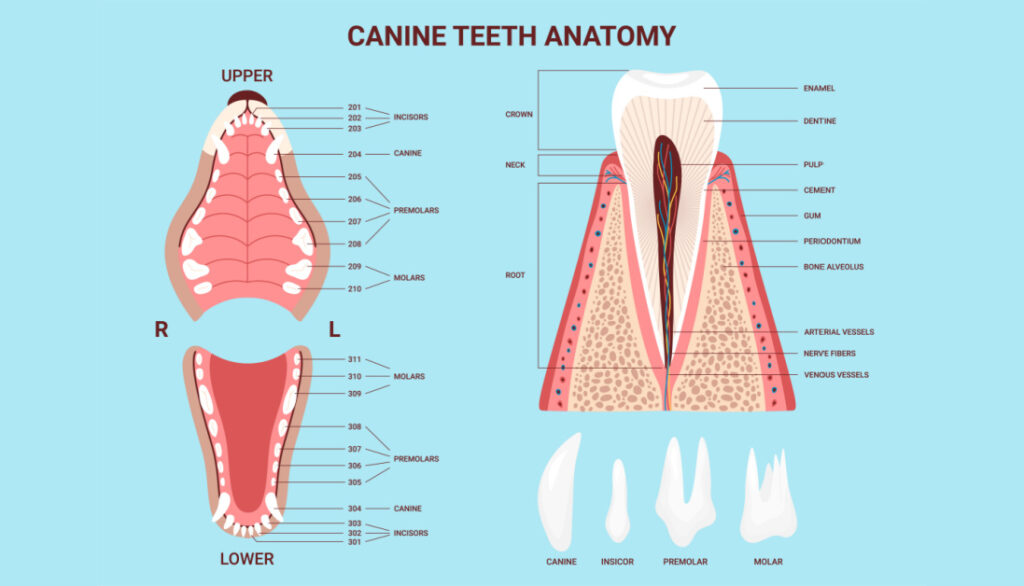
Recommended Dental Chews & Products For Alaskan Klee Kai
When it comes to maintaining your Alaskan Klee Kai’s dental health, it’s important to realize that not all dental chews are created equal. Many commercially promoted dental chews are marketed as a quick fix for dental health, but unfortunately, they often fall short of their promises.
Many of these commercial dental chews are packed with artificial ingredients and additives. They might temporarily reduce bad breath and remove some plaque, but they don’t address the root causes of dental disease. In fact, some of these products can even harm your dog’s gut health. For instance, drinking water additives, while touted as a dental health solution, can destroy beneficial bacteria in your dog’s gut, disrupting the balance and potentially leading to other health problems.
Dr. Candy’s Recommended Dental Chews & Products
So, what should you use instead? Here are Dr. Candy’s top recommendations for chews that can help improve your Alaskan Klee Kai’s dental health:
Tendons
Tendons are a fantastic natural chew for your Alaskan Klee Kai. They are tough and fibrous, which helps to scrape off plaque and tartar from your dog’s teeth. Plus, they are a good source of protein and collagen, promoting good joint health.
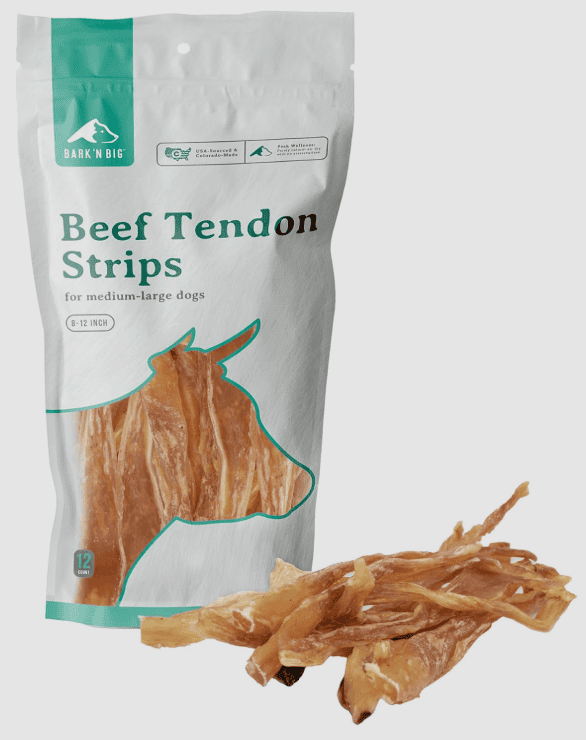
Raw Marrow Bones
Raw marrow bones are another excellent choice for maintaining your Alaskan Klee Kai’s dental health. They are a natural source of calcium and phosphorus, which are essential for healthy teeth and bones. Furthermore, the act of gnawing on bones can help to clean your dog’s teeth and gums.
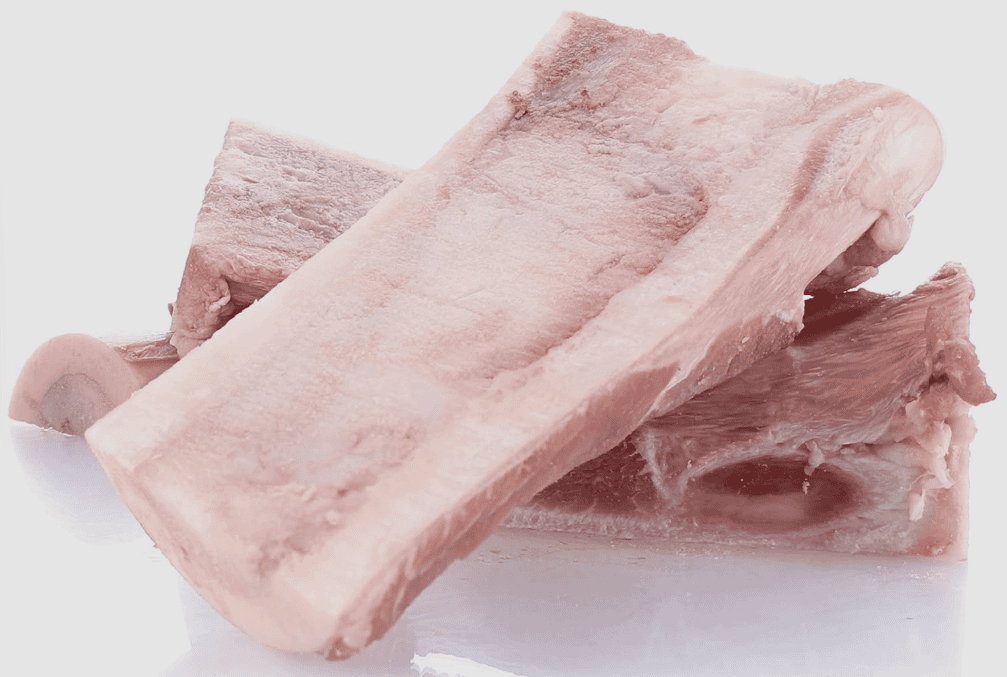
Bully Sticks
Bully sticks are made from 100% beef muscle, providing a natural and digestible chew for your Alaskan Klee Kai. They can effectively remove plaque and tartar and are a good source of protein. However, always supervise your dog while they’re chewing on a bully stick to prevent any choking hazard.
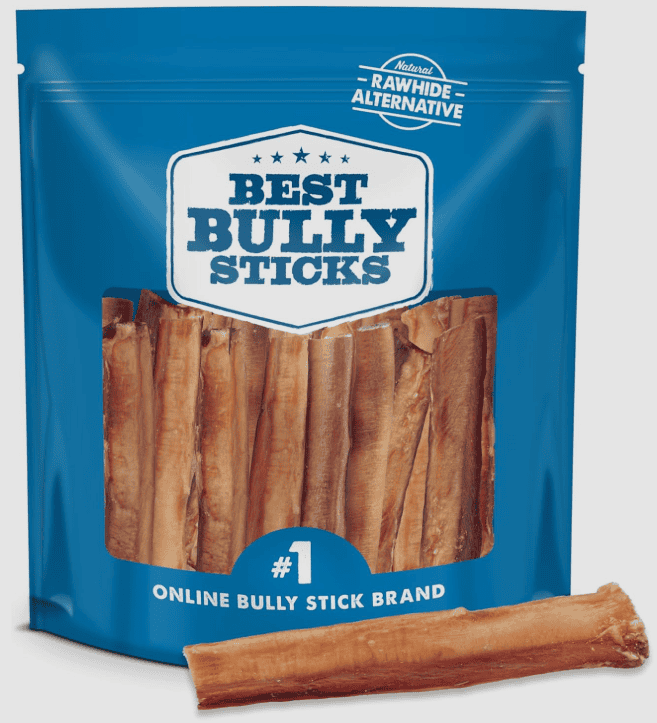
Remember, while these products can help maintain your Alaskan Klee Kai’s dental health, they are not a substitute for regular dental check-ups and professional cleanings. Regular visits to your vet will ensure any potential issues are caught early and addressed promptly, keeping your furry friend’s pearly whites in the best possible condition.
So, when it comes to Alaskan Klee Kai dental health, forget the quick fixes and invest in quality products that truly benefit your dog’s oral health and overall wellbeing. Your Alaskan Klee Kai will thank you with fresh kisses and a sparkling smile!
Frequently Asked Questions
1. What causes bad breath in Alaskan Klee Kai?
Bad breath in Alaskan Klee Kai can be caused by various factors such as poor dental hygiene, gum disease, tooth decay, or the presence of plaque and tartar.
2. How can I improve my Alaskan Klee Kai’s dental health?
To improve your Alaskan Klee Kai’s dental health, you can follow these steps:
– Regularly brush their teeth using a dog-specific toothbrush and toothpaste.
– Provide dental chews or toys that help clean their teeth.
– Schedule regular professional dental cleanings with a veterinarian.
– Feed them a balanced diet that promotes good oral health.
3. Are there any specific dental products recommended for Alaskan Klee Kai?
There are several dental products recommended for Alaskan Klee Kai, including toothbrushes, toothpaste, dental chews, and water additives specifically designed for dogs. It is best to consult with your veterinarian to determine the most suitable products for your dog.
4. How often should I brush my Alaskan Klee Kai’s teeth?
It is recommended to brush your Alaskan Klee Kai’s teeth at least 2-3 times a week. However, daily brushing is ideal for maintaining good dental hygiene and preventing bad breath.
5. What signs should I look for to identify dental problems in my Alaskan Klee Kai?
Some signs that may indicate dental problems in your Alaskan Klee Kai include:
– Persistent bad breath
– Red or swollen gums
– Excessive drooling
– Difficulty eating or chewing
– Loose or missing teeth
– Bleeding from the mouth
If you notice any of these signs, it is important to consult with a veterinarian for a proper dental examination.
